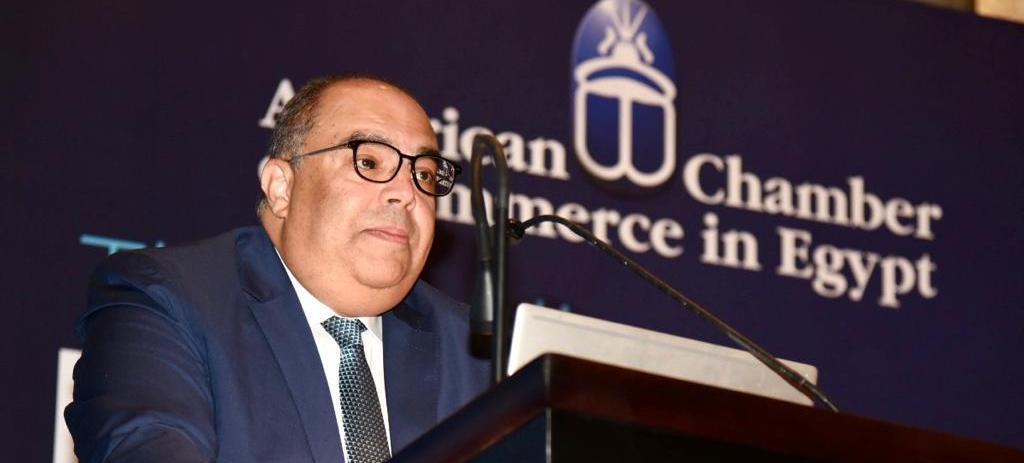In 2023, Egypt’s economy confronted severe challenges amid global and regional tensions. Despite government efforts to ease the impact on citizens, issues like soaring inflation, a US dollar shortage, and local currency weakness persist.
As President Abdel Fattah El-Sisi starts his third term, tackling these challenges becomes increasingly challenging. Business Monthly explores the economic hurdles Egypt faced in 2023 and anticipates the road ahead in 2024.
Rising inflation
In recent years, Egypt has grappled with periods of high inflation, driven by factors such as subsidy cuts, currency depreciation, and increasing global commodity prices. Throughout 2023, the inflation rate experienced fluctuations but remained in the double digits. Despite a moderated slowdown in recent months, staple prices continue to rise due to supply shortages.
For example, the price of onions surged by over 40% in the past few months, reaching EGP 50 per kilogram (over $1 per kg). Notably, Egypt was among the top global exporters of onions in 2022. The price hike occurred despite the country implementing a crop export plan for over a year.
Similarly, sugar prices soared by over 100% amid a visible supply shortage. The combination of high inflation and escalating prices for essential commodities has adversely affected individuals’ purchasing power, placing strain on household budgets.
The inflationary wave in Egypt has not only affected individuals but has also significantly impacted the private sector. According to the latest report from S&P Global, which assesses the performance of the Purchasing Managers’ Index (PMI) on a monthly basis, the confidence level of non-oil businesses in the country reached its lowest point since 2012 in November. This decline is particularly evident in the business outlook for the local market.
The report indicated that expectations were only marginally positive, with both the manufacturing and construction sectors slipping into pessimism territory.
FX currency crunch
Since March, Egypt has been grappling with a severe US dollar liquidity shortage, compounded by three waves of devaluation that have driven the local currency to its lowest level in decades. This devaluation is part of Egypt’s commitments under its $3 billion loan program with the International Monetary Fund (IMF), a program that has not seen significant progress since its approval in December 2022.
The IMF has estimated that Egypt will face a financing gap of $17 billion until 2026, while the Egyptian Ministry of Finance puts the gap for the current fiscal year 2023/2024 at between $8 billion and $9 billion.
In response to this challenging situation, the Central Bank of Egypt (CBE) has conducted auctions for four US dollar-denominated T-bills with a one-year tenor, totaling $3.3 billion. Additionally, Egypt has issued Panda and Samurai bonds, along with Islamic sukuk, to bolster its currency basket and diversify its sources of financing.
On a separate note, the UAE has extended the maturity of a $1 billion deposit at the CBE for three years, while Egypt is in discussions with the Emirati side to renew other deposits worth $2 billion. Additionally, Kuwait has renewed a deposit of $4 billion for one year.
These measures are part of a broader strategy to address the US dollar shortage crunch. However, navigating this challenge remains one of Egypt’s most formidable tasks in 2024.
As part of these efforts, Egypt has unveiled a plan aiming to generate $191 billion through 2026. The plan primarily relies on revenues from the Suez Canal, tourism, outsourcing services in the IT sector, remittance inflows, and exports.
Nevertheless, the recent Israel-Palestine war that erupted in October is expected to have a diverse impact on this plan, especially since Egypt is in proximity to the conflict escalations.
IMF deal
Since the IMF approved the $3 billion loan deal for Egypt in December 2022, the country has struggled to make substantial progress in fulfilling its commitments under the program. This has led to the failure to complete the first and second reviews of the loan program.
This significant development, coupled with the US dollar liquidity shortage in the local market, has resulted in the downgrading of Egypt’s credit rating by the three major global credit rating agencies: S&P Global, Moody’s, and Fitch Ratings.
Among the key commitments Egypt pledged to the IMF under this program are adopting a flexible regime for both exchange rates and interest rates, empowering the private sector to play a leading role in the country’s economic activity, and offering more state-owned assets as investment opportunities for the private sector.
Egypt’s Initial Public Offering (IPO) program serves as a crucial pathway to implement its commitment to enhancing the private sector’s role in the economy. The government announced in August its intention to raise a total of $5 billion from the program’s offerings by mid-2024.
During COP 28, which concluded in UAE this week, the CEO of The Sovereign Fund of Egypt (TSFE) said that Egypt has managed to attract $2.5 billion out of the $5 billion it targets for the current FY2023/2024.
In March 2023, Egypt offered 35 state-owned assets within its IPO program for investors with the majority of these companies have not seen any progress regarding their sale as of yet.
As Egypt enters 2024, it confronts a daunting economic landscape characterized by soaring inflation, a US dollar shortage, and the slow progress of the IMF loan program.
President Abdel Fattah El-Sisi’s third term in office sets the stage for addressing these challenges and implementing reforms to boost the economy. Urgent measures are required to stabilize prices, address the US dollar shortage, attract foreign investment, and accelerate the IPO program. Innovative and holistic approaches are crucial to steer Egypt’s economy toward sustainable growth and mitigate the adverse effects of the ongoing economic woes.







